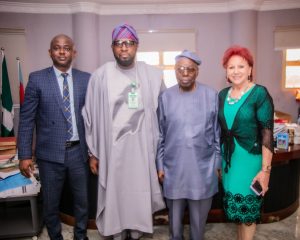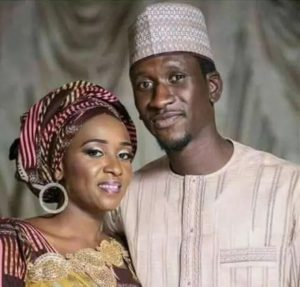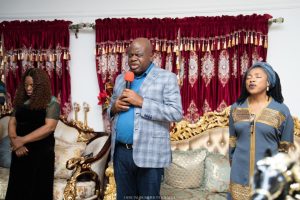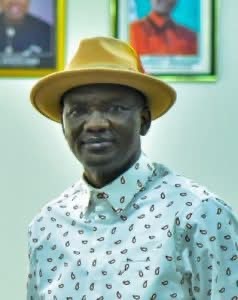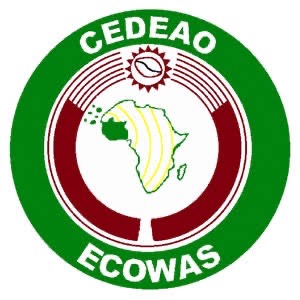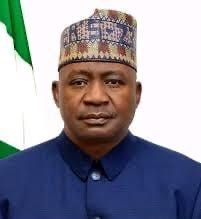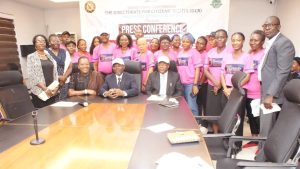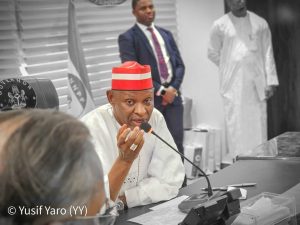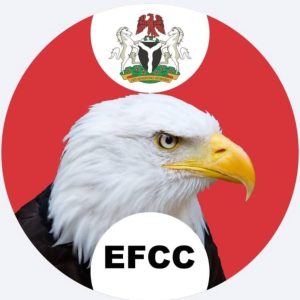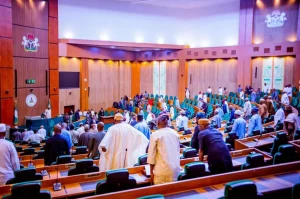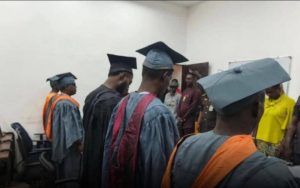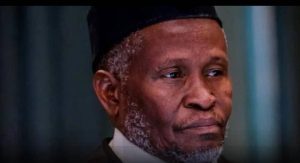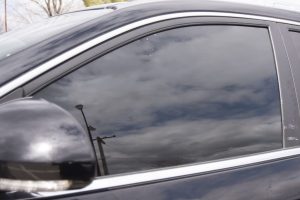Pastor Ituah Ighodalo is the Senior Pastor of Trinity House, Lagos. He sits on many board of companies in Nigeria. In this interview with Sparklight News Editor, Tosin Adesile and Assistant News Editor, Stephen Adoga, he spoke on sundry issues. (exercpts)
Recently, you celebrated your 60th birthday. How do you feel joining the league of Sexagenarians in Nigeria?
To be honest, there is no differences per se. Life is a continuum. I feel just the way I felt when I was 21 and 35 respectively. I still remain intact, by the grace of God. But, when you are 60years, you know that you are now an elder. Therefore, biologically, you know you don’t have too much time anymore. Then physiologically, you don’t have time to waste. You have to do what you need to do very, very quickly while you still have the strength to do few things. In terms of experience, you know you have had a bit of it. So, you need to plan your exit and succession. That is generally how it is.
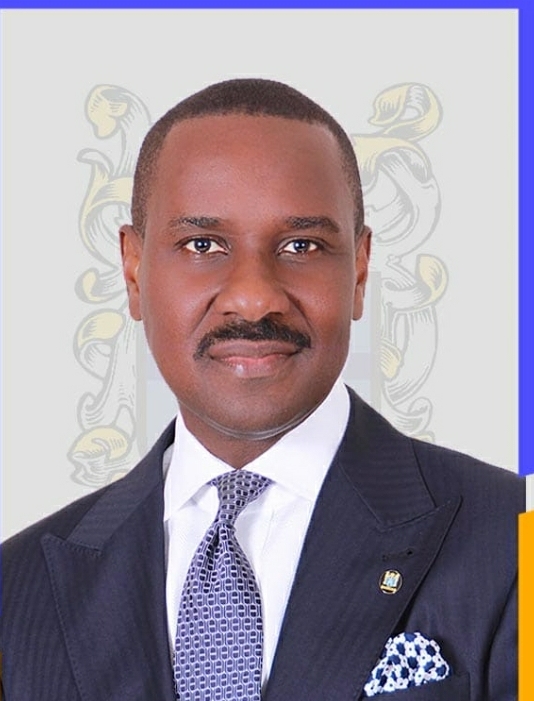
How was growing up like?
Well, I grew up in Ibadan. Ibadan was the capital of Western Nigeria. Back then,Western Nigerian started from Ebute-Meta, Yaba bus stop area, right through Ikeja, Ketu, and Ikorodu till Ore on the south eastern border. That was western Nigeria. And then, right up to Oyo and almost into Kwara state. Ibadan was then the biggest city in Nigeria in terms of the landscape and population, not Lagos. Lagos was the federal capital territory which stretched from where Lekki is, now, to Yaba and Iganmu. Surulere wasn’t part of western Nigeria at the time, but was gradually handed over to Lagos. Ibadan was quiet ideally. There were no fences, barbwires and there were no burglary proofs in most homes. People lived a very simple life which means there was no armed robbery and kidnapping. Although sometimes a child could go missing for a day or two, but no kidnapping for ransom. There were Fulani herdsmen, but there were no clashes. The cows moved up and down and went to wherever the abattoirs were. Everything was under control. There was plenty to eat. Electricity was constant. Telecommunication was a bit of a challenge because there were not enough lines, but you could at least dial in and out. Schools were available and education was free for most of western Nigeria. Most of the roads were good and tarred, although there was a bit of dirt here and there. The naira was equal to the pound, more or less. Pounds was just superior by one or two percent. We had hope, aspiration and expectations. We looked forward to a very rich future. The thinking was that, get educated, work hard, do your best and God will help you complete the rest. There was corruption, no doubt, but it wasn’t rampant. It was just in few places and, wherever it was discovered, it was exposed and became an embarrassment to the family, or to the person who was corrupt. I think the first time we had a case of armed robbery was of a case of a gentle man called Oyenusi around 1974 or 1976. They were rounded up and were caught. That was what Ibadan was, and generally Nigeria. Lagos was always a delightful place to come to. Although it was a 2 ½ journey because there was no Expressway.
Your life has been an inspiration to many young people. What drives you?
My focus, really, is not on young people, to be honest. My focus is on people, simple. But it seems as if, maybe, it is the young people that sort of need me the most. But, my simple focus is this: everyone that I come in contact with, that I am associated with, that I meet; young, old, lame, blind, disadvantaged or whatever live a better life, know God and fulfil their purpose in life. That is my driving force–to make life better for everyone that I meet, as long as they, themselves, are interested in making life better for themselves and they are serious and they are focus.
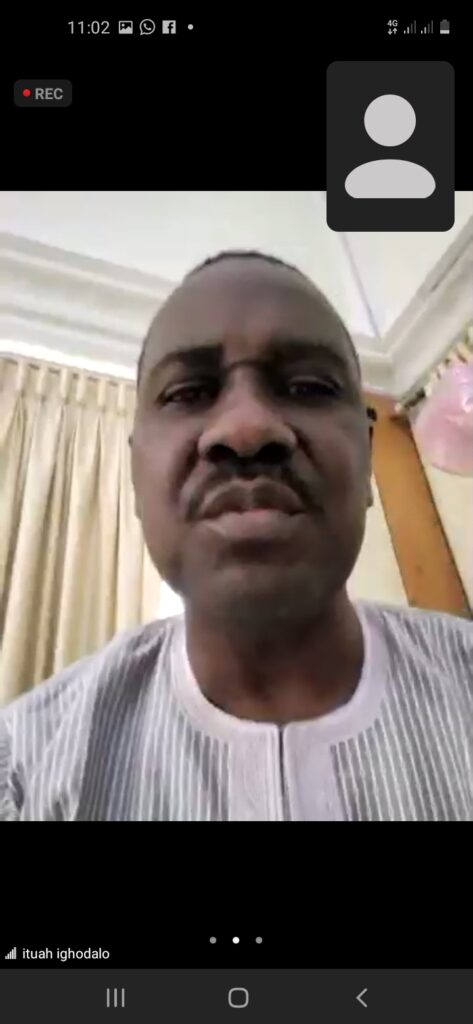
Can you tell us how you climbed to the ladder of greatness?
Well, I don’t know what you mean by climbing to the ladder of greatness. All I know is that I have lived life one day at a time. I have set my vision in life and the things that I want to achieve, and I have tried my best to go after them on a day-by-day basis. The Bible says “sufficient each day is the trouble thereof”. So, I plan my day and what I want to achieve. I run after achieving it and I find that each day as i make some kind of advance and some kind of improvement in my life. That is basically the way I have lived life thus far. If that has led to some kind of achievement or accomplishment, I am grateful to God. But, honestly, I am still moving, climbing, working. I have quite a lot to do and achieve. So, I am not even sure I am one-third of the way. Kindly pray for me, that all that the Lord has laid in my hands, I am able to do.
You established some NGO’s and you are passionate about them. Why?
My NGOs are response to needs. I didn’t establish them frivolously for the sake thereof. But, where there is a need and there is a need to respond to, I establish something. I create a structure to respond to that need and I take each one by one. I find people who can manage or run them, and then I give supervision and direction. Some of the NGOs, in fact, were not my original idea. It is other people that had the idea and the passion. They came to me for direction and supervision and the submitted themselves to me and I took them up. Whenever I see something to be done, for the benefit of mankind, I am dearly drawn to it. So, when we needed to look after the motherless babies, I set up a motherless babies’ home and put a lady in charge. When I was encountering, on an increasing basis, some people who were blind and they told me they wanted to do some things and they couldn’t do them, I set up an NGO to help and support them. We are on record as one of the first NGOs to do blind football competition in Nigeria and I am still the chairman of Ighodalo Lions. The other team was Fashola Babes that I got in with Fashola to support. We have this competition from time to time, just to encourage blind people. When it was time to look after the people that were deaf and dumb, there was a lady in my church who has a child with such challenges. I got her to run the NGO and we started having dancing competition. We call it Silent Initiative, where people who couldn’t hear and unable to speak could dance to the rhythm of music and act drama. That group is still subsisting in my old church till today, although they are not as active as they used to be. When we started going to the prisons in the north, we set up the Joseph Liberty Foundation. Joseph, who came out of prison to give liberty and hope to the prisoners. When I needed to start paying school fees, I set up College Education Foundation and we were paying school fees of many children, even till today. So, those NGOs respond to the needs of the people. When I needed to look at people who couldn’t pay their medical bills, I set up an NGO called Eden’s Field, meaning, returning back to full life and full health as it was in the Garden of Eden, the field of healing, where nobody fell sick, and people lived as long as God allowed them. So, these are the things I do, just to respond whenever there is a need. When a young man wanted to run a mental health foundation, he came to me and asked me to be his chairman and we started running that NGO. I have quite a lot of people like that, who also come to me with theirs, and I do my best to also encourage and support them.
How did you find yourself on many companies’ board in Nigeria?
To be on the board of a company, the first thing is to start the company by yourself and put yourself on the board. I have quite a lot of companies that I have started and I am on the board of those companies. Some survived, some failed and some are still in incubation. For instance, my accounting practice which merged with three firms to become SIAO/RSM, I am still on the board of that accounting practice. It is about the fifth largest accounting practice in Nigeria today, and it is doing well. Then, my wife’s company, Elizabeth R, which we started together, I am chairman thereof. We own in together. It was her company and she ran it. I am still on the board, even till today, after her departure. There is Donald Glasgow, eyeglass exploration which a young man called Donald put together and then invited me to be his chairman and financier. Till today, I am the chairman of the company and they are beginning to pick up here and there. There are others like NSIA Insurance that was established many years ago by a gentleman called Professor Joe Iroko. It was sold to Ivoirians and then they invited me to the board and I became the chairman, even though I have no financial interest in the company. Similarly, the Old Barter called FAMAD, bought by a family friend in Lagos. They invited me to become the chairman, even though I have no interest therein. There is also the Inner Trust Micro Finance, where I am also a board member by invitation. So, you get people who recognized who you are, your skills, interests and sincerity, to some extent, and your ability; and they tend to come to you, first of all, to seek your advice and to invite you to their board. So, the only way to do those things is to go out, actively looking for them and offering your services, or make yourself valuable by doing things that have value. And, when people see that you are valuable, that you are useful then, somehow they will come to you, but you also must be careful so that you don’t over stretch yourself and burn your candles at both ends, and take on those to which you can really, really contribute and add value to, because you only have 24hrs in a day, and you have to have time for yourself and family. I run a church and a very serious ministry. As such, you have to know what your priorities are, and how to manage your time. If I keep mentioning all of them, it will take too much of our time while I cannot forget to add Finatrust MFB.
The last time you spoke on the state of the nation, you criticized President Buhari and accused him of not doing enough in terms of protecting Nigerians, would you say there has been any positive change since you voiced your displeasure?
It’s a bit too soon to see if there are any changes. But, at least, even before my comments, the President had been gracious enough to change his military chiefs, and everybody was hoping and expecting a lot of improvement. Unfortunately, we were told that the late Chief of Army Staff who died on Friday was a very thorough and focused professional who was determined to bring down some of these security issues and put an end to them. He was working and motivating his troops and people were expecting some kind of improvement. I also feel that the police is being strengthened, because one of my sons in the police, just a few weeks ago, came to me and was telling me some things were happening and that he was being deployed to the east. Maybe that are some moves going on now in the right direction, but it is too early to say what the effects thereof would be. All I know is that, it is very possible to bring to a reasonable level if there is such a thing, or totally bring an end to the insecurity problems in Nigeria. It is possible. I think Nigeria has the names, the skills, the resources. And today, there is technology all over the world to make this thing possible. Some of it, though, might be from economic foundation. You know when the economy is bad or not so good, the devil finds work for idle hands. So, some issues may not be totally fixed until you can fix the economy. As long as there are jobless people all over the place, they will tend to find an alternative by which they can make life better for themselves, and the simple alternative is crime or criminality, or corruption, or fraud. If those kidnappers were gainfully employed, had good degrees and could find jobs, there wouldn’t have been such persons. Some of these things are politically motivated. Let us sit with the people, find out what the issues are, and negotiate with them, discuss with them, assuage their fears, convince them and, if necessary, bring them down if they refuse to be reasonable and they are being unlawful. If some people have a problem, you go to them and solve their problem. But, they, too, must remain within the law. They cannot turn themselves to bandits and tyrants because they have a problem. No, they cannot. They cannot create another problem based on their problem. The government responsibility is to solve the problems of its people and give them hope, manage and prevent them from committing crime.
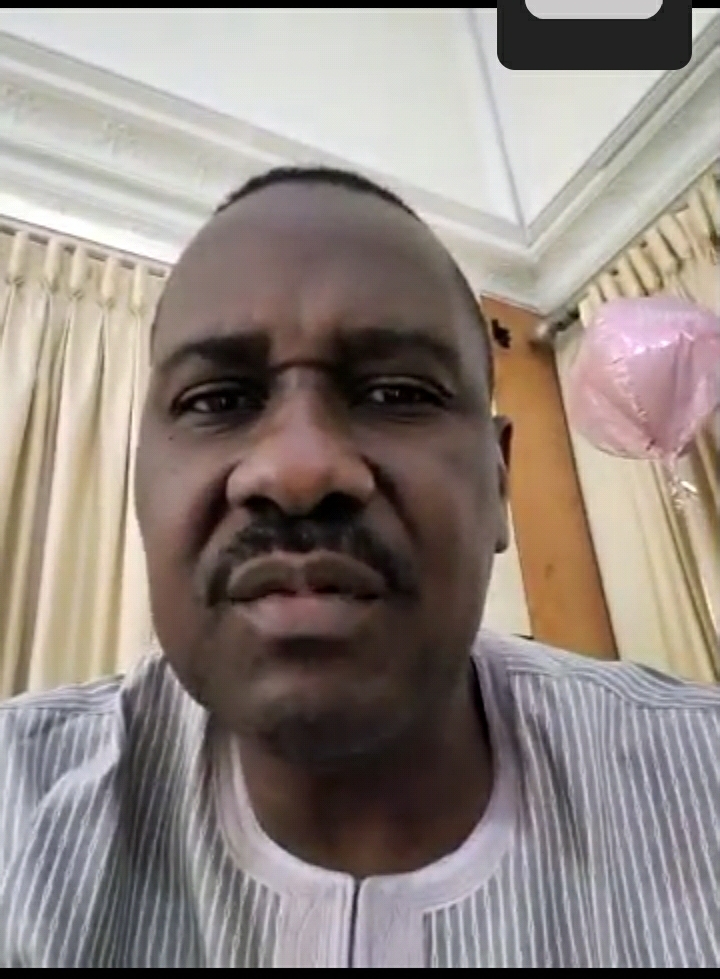
This year alone, many high-ranking military officers have died in plane crashes. Considering they are the leaders in the fight against terrorism, do you think there is sabotage involved in these crashes, perhaps to frustrate the fight against terrorism?
That would be very, very deep, serious and unfortunate. Let me not over postulate that, because I don’t have evidence. But, in Nigeria, all things are possible, because political and personal interests almost far outweighs anything else. But, even before we get there, I think some of these crisis are due to ineffective management of some of the equipment that we have. A lot of our equipment are a bit old and not properly serviced. And, maybe some of our security men have not received full investment in their training in their exposure and support. You know, if you are a doctor, what makes you a good surgeon is your ability to perform numerous operations. So, a lot of times, if you want to get a surgeon, you look for one who has worked in rural, teaching or a mass-appeal hospital, because he does twenty hernias, or ten hernias a day, rather than a surgeon that does one a day. You learn by practicing, day by day. A lot of our people are not exposed to some of these practices. There is not enough investment in their training and there is no investment in the optics and the equipment they have. There is not enough repairs and rejigging of our security architecture. Therefore, it is unacceptable in any kind of country for the military to be rendered so helpless. It is not a good thing that we are having these multiple accidents. My heart goes out to the fallen heroes, their families and loved ones in a very deep way.
In October, last year, the Nigerian youths, having grown tired of police brutality, took to the streets to protest but were met with violence and some of them were reportedly shot at, at Lekki Toll Gate and other locations. Do you think the Nigerian youths have a place in the Nigerian society?
The age group between 18 and 35, call them by whatever name, are a very, very important group in Nigeria. It represents between 45-50% of our population and by the time you add those between zero and seventeen, you have almost 70% or 75% of our population. It means that most of our resources are going into that age group. It means that their demands or requests in the society; mental, physical, spiritual and employment wise, must be met. It means that they must be protected and be looked after, because they are our investment for the future. A government that does not take cognizance of this group, simply because they are not yet in possession of power, is not being fair to itself. So, it is good to sit down, get their representatives, and talk with them, work with them, understand them and create an environment for them to thrive. I know that, for example, the sheik of Dubai, Al Mattoon, has a 22-year-old in his cabinet, who is the Minister or Secretary of Youths (or whatever they call it there). He has a 27-year-old, who is the minister of Artificial Intelligence. His government is full of young people who are creating their own world. They thrive in the environment of creativity. They work anywhere and anyhow, from home and on the street, in a group. They make a lot of money without putting anything physical structures on the ground. They move about day and night. They like safety and they are not conventional in their dressing or outlook, but they are full of energy and ideas. Look at what has happened to the Nigerian entertainment industry, powered by the people. The film industry, powered by the people. The music industry, powered by the people doing all sorts of things. Information technology, powered by these people. It is a big economy and we must allow them to thrive instead of talking down at them and stop thinking that we are doing them a favour, simply because those of us in leadership are out of that age group and we still think that Nigeria is made for us. We are really, really not doing things properly. So, we need to look again. We keep calling them youths, but I think they are our nation. We should stop calling them youths. They are Nigeria, and Nigeria must takes care of Nigeria. They must be engaged and they must engage. It is unfortunate that they had to start crying out for themselves and keep shouting and keep making demands. And when they are making these demands, instead of us to patiently listen to them, we think they are being irrational, they are irritants and they want to bring down the government. But I don’t think that is the issue. I think that we have to listen to them, and I don’t think that they have that level of implementation or deep thinking or even sponsorship politically, to bring down any government. I think they were just making their requests known. I think the reason they didn’t have leadership which, I think, they should have had, which was a mistake. When you don’t have a leadership, it makes it very difficult for anybody to negotiate with you. And, in fairness to this government, the announcement that their request had been granted was made, at least. Although the police still made another mistake in starting another formation when they said they had brought down SARS. Now, the government said come to the table let’s discuss but they said they had no leaders, because they were afraid of having their leaders corrupted, mistreated or abused. They didn’t trust the government, which was why they said they had no leaders. And the government was overwhelmed because, how do I negotiate with someone whom I do not know? Therefore, the confusion arose. I think the process should have continued, and those lives needn’t to have been lost.
There have been agitations for the separation of Nigeria by some ethnic groups and, in all the agitations, one common thing government was accused of was injustice and marginalization. With these calls for separation, do you see Nigeria as one country in the next few years?
We do. We have been together for long–since 1914, more or less over 100years, under various understandings and arrangements, and we have kept together, tolerated one another and we have worked together. We have made progress together and we have a lot of shared resources. The issue now is that, agreements of the past have not been met. Some people’s expectations have not been met. I think we can address the issues that are bordering everybody, sit round the table and create a win-win situation for everyone. I think we can still make Nigeria work, which is what we should focus on. I think the main issue, really, is better economic development and better development of economic resources for every part of Nigeria. Every part of Nigeria will rather control and develop its resources at its own pace and provide services and facility to its own people. As it is, let the central control and distribute which, up to date, has not been very successful. I think if the central government can respond to that, all this agitations will stop. The fear of the government to respond to this simple agitations is what is causing the problem. Nobody, deep down, wants Nigeria to go. They know the cost of separating Nigeria. Some are saying that we should go regional, but when some peoples’ expectations are not met they tend to get anxious. So, we are just asking the central government to help us meet the expectations of our people and then everything should be fine.
You started Nigerian Leadership Series and many governors and high powered Nigerians have featured on the programme. Have there been any changes in the country since you started?
I can’t say there is a change in the country because Nigeria is a big country. All I know is that quite a lot of people have gotten on the platform. They have made comments and they have gotten ideas, they have been sensitized and we have gotten a lot of feedback. So, I think it is making impact. Whether it has caused changes is what I don’t know. All I know is that I am learning a lot from it. I am understanding Nigeria and people better, and it is fulfilling for me the purpose for which it was set up. I wish we could have greater reach here and there. But it is coming. Few people are approaching us, requesting to air the programme on radio and TV. I guess we are getting noticed.
Aside from ministerial work, what do you do during your leisure time?
For me, everything is work-and-play. I enjoy my work and my play is my work. So, I don’t differentiate between anything. I just take up my activities and do them, one after the other. Everything I am doing, I am gaining and learning something from it. I am improving in some way from it, even when I am sleeping. Even playing football with my son, for me, isn’t leisure, because I use that to teach him to become a better person in life. That is the way I look at life–being productive in every aspect of your life, not wasting times and seasons.
At 60, you still look very youthful. What is the secret?
First of all, my looks were not ordained by me. I woke up and I saw that this is how I look. So, it is a gift and grace from God. I try to eschew bitterness. I am not a bitter person. I am not a viciously competitive person. I bear no grudge, no ill against anybody. I make my comments. Nothing is personal. I just want everybody to do well and to fulfil purpose and to make life better for the next man. I mind my business and live a simple life. I eat simply fresh things and I focus on where I am going. So, it makes life very simple for me. Of course, I don’t drink alcohol. I am reasonably disciplined in everything that I do. All those things that open you to ageing and all manners of problems are largely limited or eliminated in my life. I have a good sense of humour. I laugh and make jokes all the time. For most people around me, you can’t sit with me between 5 and 10minutes without a laugh.
What are some of the great moments you had while growing up?
There were many moments while growing up. I remember the day I got into Kings College, Lagos. It was a mixture of feelings. Sad that I was leaving home for the first time, and excited for the new adventure that I was going into. I remember my first trip to England by myself. I was 17 or 18 years, bought my ticket and jumped on the Nigerian Airways flight and made my way to London. Those were fantastic moments. I remember growing up and traveling with my father from Lagos to Ibadan in his Hoyden MJ8. Those were fantastic moments. I remember feeling the world was at my feet. Those were exceptional moments and I thank God for life and the privilege, having had those moments.
What is your advice for the country?
My advice is very simple. Let us bring all Nigerians together and find out what Nigerians want. Let us discuss and negotiate. Let us create a level playing field for Nigerians so that they can aspire for whatever they want. Let us develop all our economic resources so there can be much more for us to share. Let us educate all our people and then we will be surprised how prosperous Nigeria would be.






